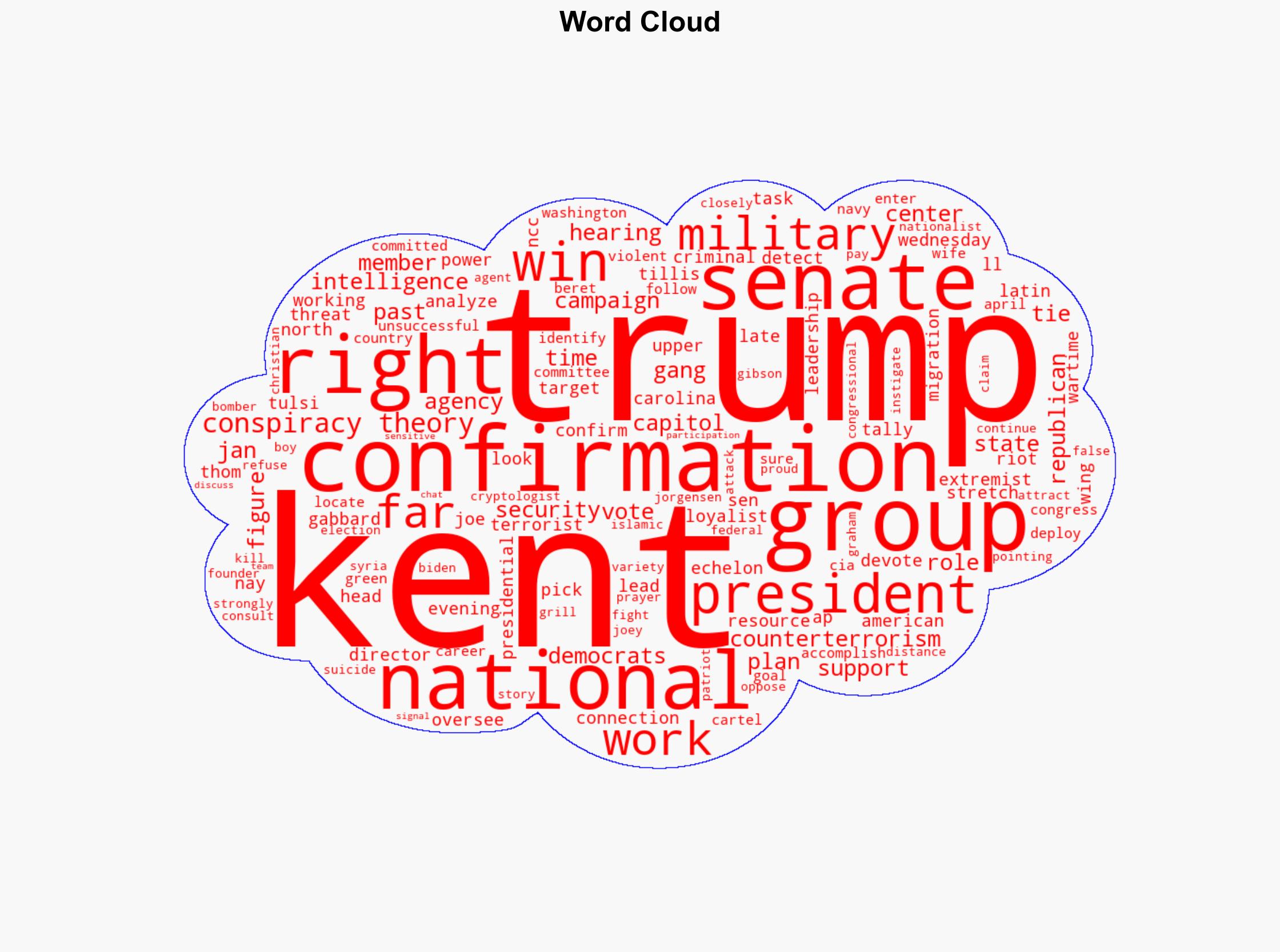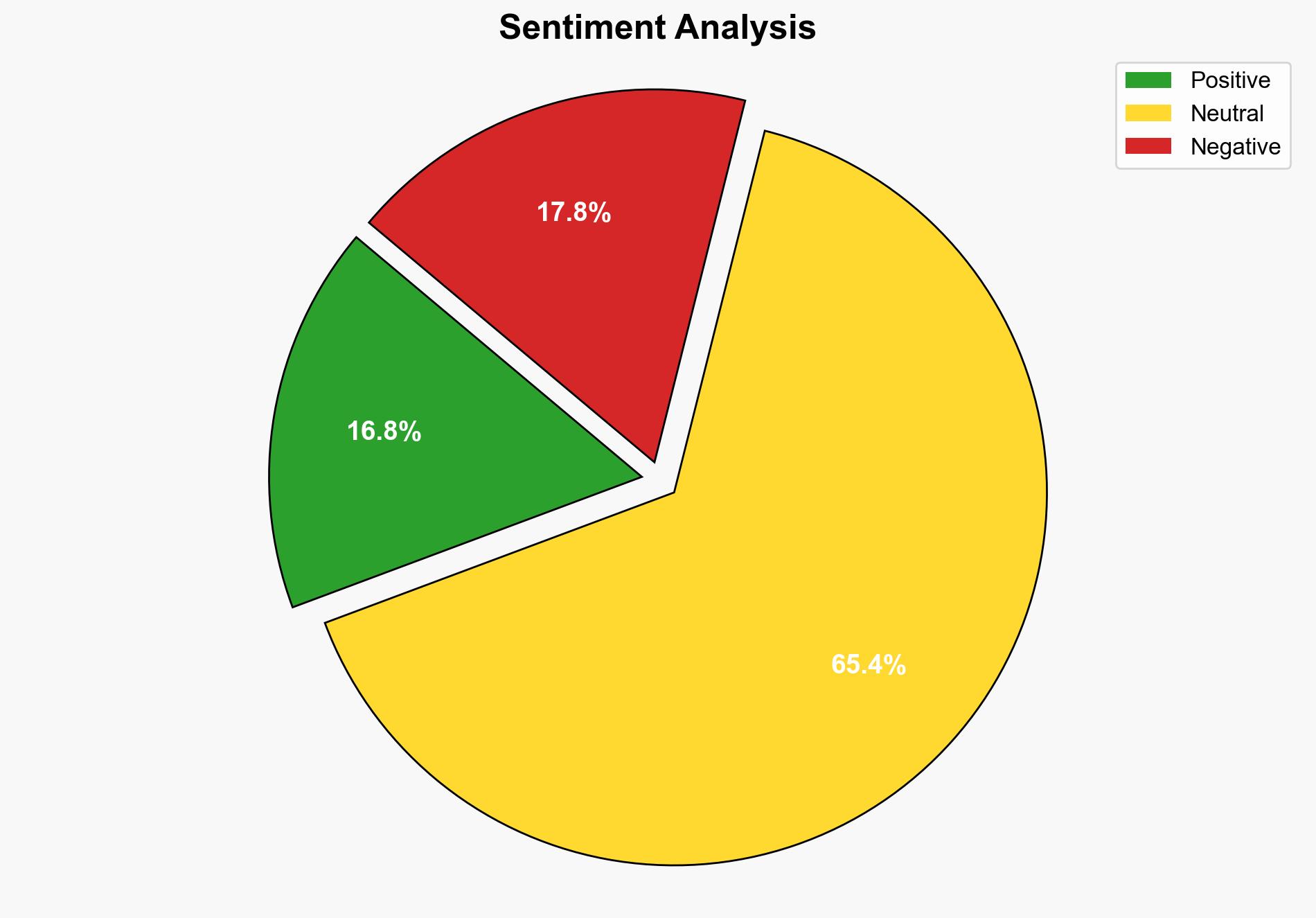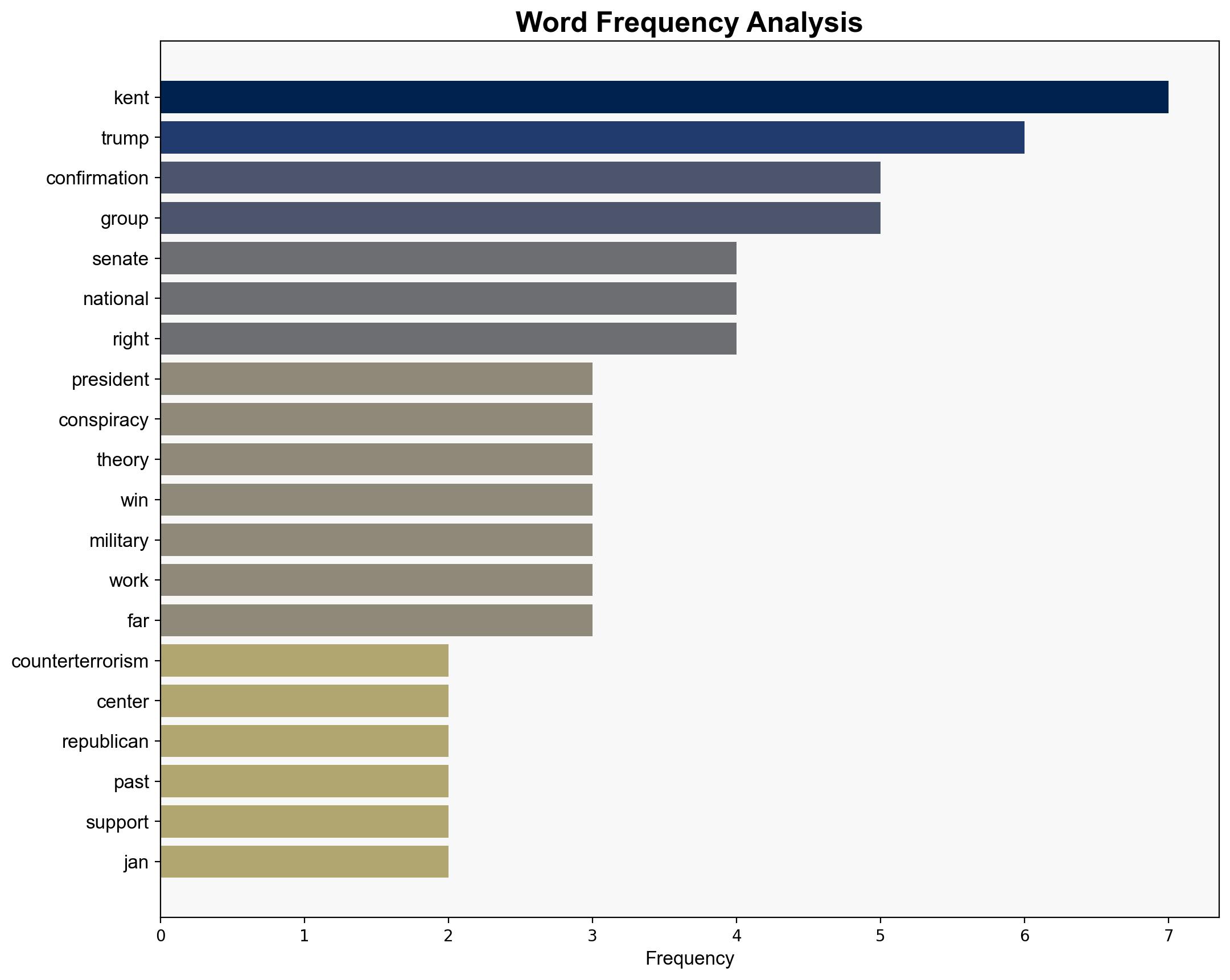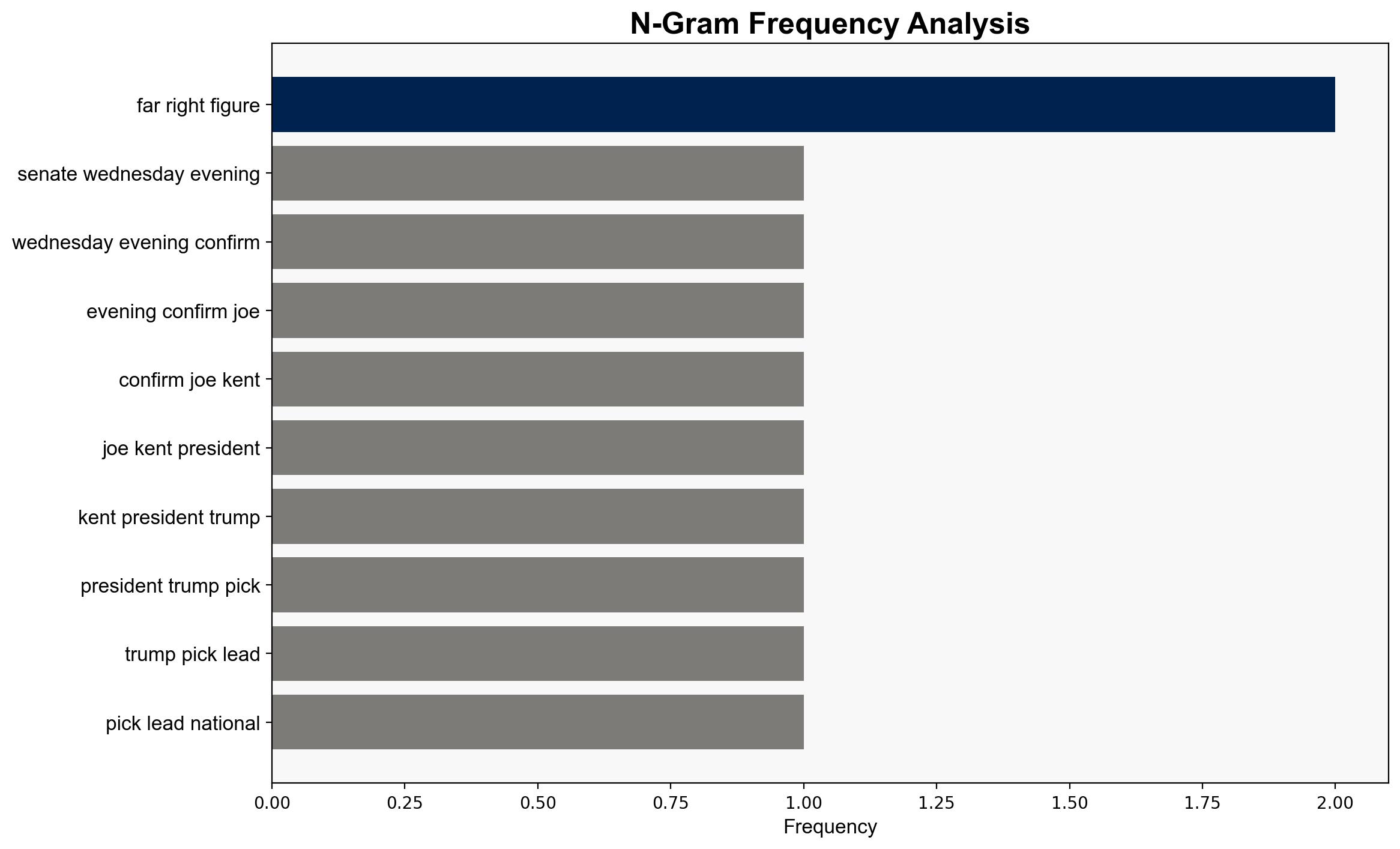Senate OKs Ex-Green Beret With Extremist Ties to Fight Terror – Newser
Published on: 2025-07-31
Intelligence Report: Senate OKs Ex-Green Beret With Extremist Ties to Fight Terror – Newser
1. BLUF (Bottom Line Up Front)
The confirmation of Joe Kent, despite his ties to extremist groups and conspiracy theories, raises significant concerns about the integrity and direction of national counterterrorism efforts. The most supported hypothesis suggests that his appointment could lead to a shift in focus towards domestic groups aligned with his views, potentially undermining broader counterterrorism objectives. Confidence level: Moderate. Recommended action: Monitor Kent’s policy decisions closely and prepare contingency plans to address any shifts in counterterrorism focus that may arise.
2. Competing Hypotheses
Hypothesis 1: Joe Kent’s confirmation will lead to a biased focus in counterterrorism efforts, prioritizing groups aligned with his and his supporters’ ideologies, potentially neglecting other significant threats.
Hypothesis 2: Despite his controversial ties, Kent will adhere to a balanced and objective approach in his role, maintaining a comprehensive focus on all forms of terrorism.
Using ACH 2.0, Hypothesis 1 is better supported due to Kent’s refusal to distance himself from extremist views and his past political affiliations, which suggest a potential bias in his operational priorities.
3. Key Assumptions and Red Flags
Assumptions: It is assumed that Kent’s past affiliations will influence his decision-making. Another assumption is that his leadership will significantly impact the agency’s focus.
Red Flags: His refusal to distance himself from conspiracy theories and extremist groups during the confirmation hearing is a significant red flag. The lack of clear statements on his counterterrorism priorities adds uncertainty.
4. Implications and Strategic Risks
The appointment could lead to a shift in counterterrorism priorities, potentially neglecting international threats in favor of domestic groups. This shift may result in increased domestic polarization and undermine international counterterrorism collaborations. There is also a risk of internal dissent within the agency if Kent’s policies are perceived as biased.
5. Recommendations and Outlook
- Monitor Kent’s policy decisions and public statements to assess any shifts in focus.
- Engage with international partners to ensure continued collaboration on global threats.
- Scenario-based projections:
- Best Case: Kent adopts a balanced approach, strengthening domestic and international counterterrorism efforts.
- Worst Case: Kent’s policies lead to a significant neglect of international threats, increasing vulnerability.
- Most Likely: Initial focus shifts towards domestic groups, with gradual adjustments based on political and public pressure.
6. Key Individuals and Entities
Joe Kent, Tulsi Gabbard, Thom Tillis, Graham Jorgensen, Joey Gibson
7. Thematic Tags
national security threats, cybersecurity, counter-terrorism, regional focus





